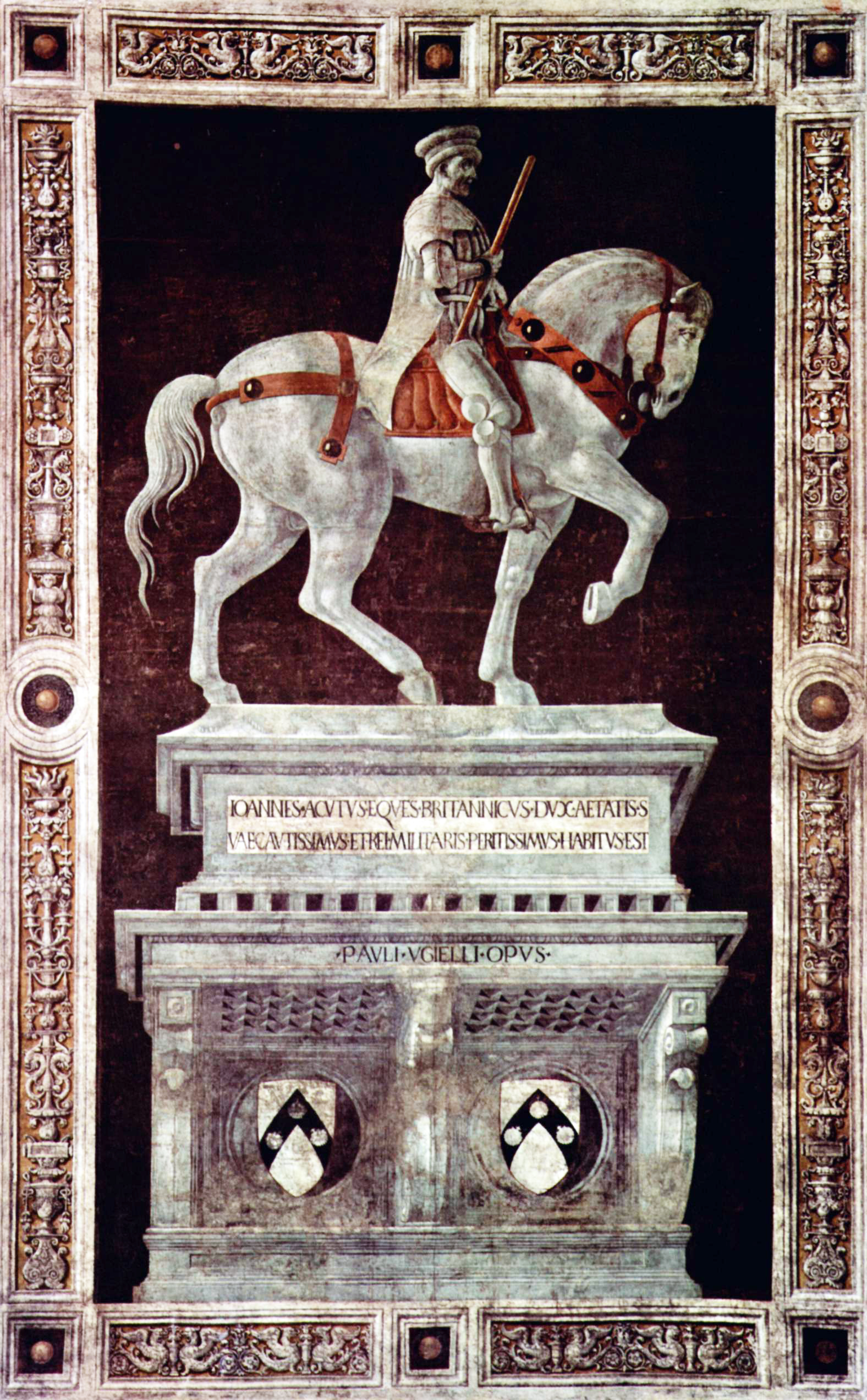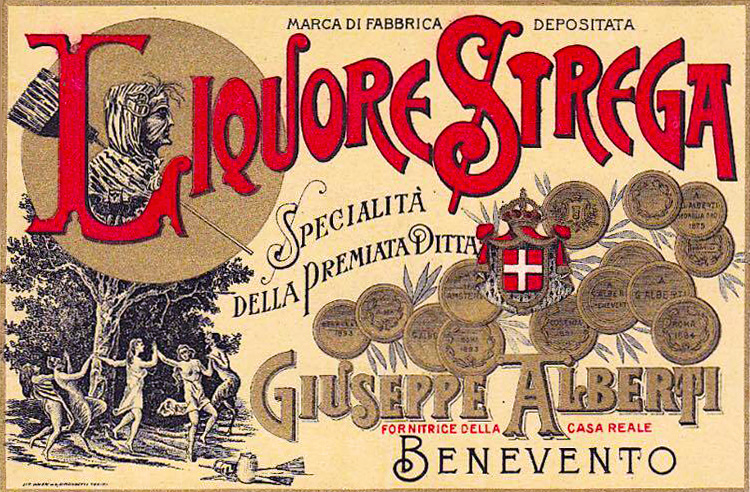How did the son of a wealthy land owner in England become both a respected adversary and ally to the Florentine Republic? Born John Hawkwood in 1323, he became known as Giovanni Acuto (John the Astute), one of the most notorious mercenaries of the 14th century, who left a legacy shrouded in myth in both his native country, but more so in his adopted land – Italy.
Giovanni began his career in the Hundred Years’ War in France under Edward III as a longbowman, participating in both the Battle of Crécy in 1346 and the Battle of Poitiers in 1356. At some point between the two battles, he was knighted, but following Poitiers, he joined the White Company, an infamous band of mercenaries. In 1361, the group crossed into Italy and fought for numerous factions including the Pope, Milan and Florence. Giovanni became the commander of the mercenary group in 1363 and would spend the remainder of his life in the country.
The mercenaries came to Italy at the behest of Pope Innocent VI, who initially at odds with the group, offered them military employment. Giovanni treated his men well and they were loyal to him. This was unusual in the case of hired armies of the time, when men would often depart in the dead of night before an impending battle if the outcome was at all in question. Hawkwood and his company arrived in Italy during a power vacuum following the Great Schism of the papacy, when many different political figures were vying for power. Even though he had yet to receive any money from the pope, Giovanni remained loyal to the papacy. In order to pay the men, when times were slow, He would raid a town and demand payment. It was an effective means of keeping the army of fighting men together. The pope ordered Giovanni to lead the Pisan army against Florence in the war between the two great city states. His tactical skills on the battlefield were formidable, which impressed the Florentines, even though he was on the opposing side.
One of Giovanni’s more important roles came soon afterwards during the Great Raid on Tuscany. This led directly to war between Florence and Pope Gregory XI, but it also served to boost Hawkwood’s fame and fortune. Frustrated by not being paid by the Pope, He marched along the Via Emilia towards Tuscany and Florence. Fearing that a sake of area was imminent, two Tuscan ambassadors met him to conclude a truce, for which they paid him the enormous sum of 130,000 florins. He honored the agreement not to attack any of the cities, but continued to march through various territories, such as Pisa, Siena and Arezzo, where additional money was offered and accepted. At the time, many believed the march and threat of raids were by order of the Pope. This led to a defensive league between Florence and Milan. Siena, Pisa, Lucca, Arezzo and Queen Joanna I of Naples soon followed and joined the defensive alliance against the mercenaries and the Pope, leading to the War of Eight Saints in 1375.
The seeds of war were sown when Gregory XI sent Harkwood to Città di Castello to put down a rebellion. Instead the mercenaries captured and looted the town. Although this frustrated the pontiff, he had no choice but to remain in league with the mercenary leader. Still unpaid by the pope, Hawkwood’s next move was in the city of Faenza. Summoned by the papal governor for protection against a revolt, he instead occupied the town. Upon receiving news of the path of domination created by the mercenaries and recalling his tactical skills on the battlefield, Florence bribed him not to attack the city. Although the sum was not the king’s ransom that he received from Pisa, he respected the mercantile influence of Florence and accepted the terms. The republic also offered him a pension, citizenship and forgave all of the wrongdoings he had committed against Florence. He became known as Giovanni Acuto.
By 1385, the now former mercenary leader was over 60 years old and was both wealthy and a landholder. Most of his duties in Florence were defensive and he had not fought in a major battle for a decade. However, in the winter of 1385–86, war broke out between Padua and Verona. The most important engagement in the war was the Battle of Castagnaro, which has been described as his finest victory and one of the greatest feats of military prowess of the era. During the battle, Hawkwood evaluated scouting reports and concluded that a gap existed in the Veronese’s left flank. He ordered his men to advance. The timing and location of the strike was perfect. Over 4,500 Paduan soldiers were captured and victory was secured.
Acuto’s tactics employed on the battlefield included feigned retreats, ambushes and the use of false information, yet he was loyal to those who employed him and even traveled with a portable altar for religious services. His profession was brutal and the reason for his success was his intent to win with the smallest stakes lost. His tactical expertise extended to is personal life as well. In 1377, he married Donnina Visconti, an illegitimate daughter of the great Milanese ruler, Bernabó Visconti. It was political match and like her father, she had a forceful personality. They had four children together.
Giovanni Acuto died in Florence on March 17, 1394. An elaborate burial ceremony was conducted in the Duomo. It is recorded that the town fathers furnished three banners with the arms of Florence and a helmet with a golden lion holding a lily in its claw as the crest. Originally, under Albizzi government, it had been intended to build a marble tomb for Hawkwood, but the money was lacking. In 1436, the Medici hired Paolo Uccello to paint the Duomo. Uccello painted a portrait of Giovanni that survives today in the third bay of the northern wall. He is seen on a grey-green horse with a commander’s baton, dressed in partial armor and is remembered in Italy as the most famous mercenary of his era.





